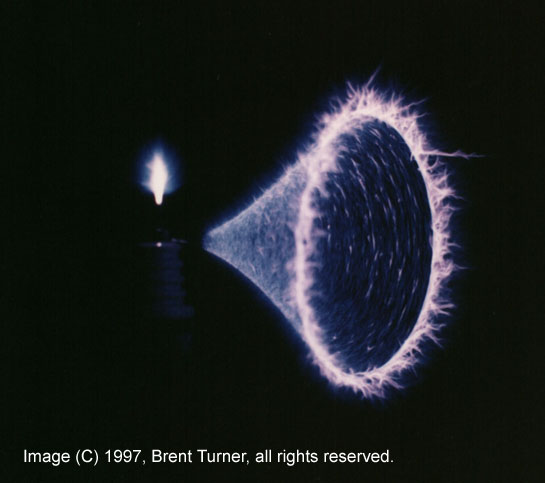

http://www.geocities.com/fubarque99/index.html
In order to get a more accurate picture
of this man and who he was, it needs to be noted that Tesla suffered from what
we would now call obsessive-compulsive disorder, though it was largely unknown
at the time. This was most evident in his personal, rather than professional
life. Though, even in the laboratory, he was always immaculately attired, including
stiff collars and white gloves. He lived his adult life in New York in numerous
hotels, including the Waldorf-Astoria. Here, he demanded that his meals be served
by the Maitre d' and not a simple waiter. He required 18 napkins at his table,
and 18 fresh towels in his room a day. He was also known to walk around the
block three times, counting his steps. He even requested room 207 in a hotel
because the number is divisible by three. This behavior is called triphilia-
love of the number three. Before eating, Tesla counted items of food, especially
those in the shape of cubes, otherwise he couldn't enjoy the meal.
Tesla was also a synesthesiac; he had unusual sensory cross-overs. For example,
a terrible taste would fill his mouth if he dropped small squares of paper into
a liquid.
Tesla says that in 1881 his senses became unusually sensitive, especially his
hearing. Though this is a plausible claim, some of his assertions seem far-fetched.
For instance, he claimed that a fly landing on a nearby table sounded like a
loud thud, and a train whistle 20 miles away would make his chair vibrate. He
adds, "The sun's rays, when periodically intercepted, would cause blows
of such force on my brain that they would stun me. I had to summon all my willpower
to pass under a bridge or other structure as I experienced a crushing pressure
on my skull. In the dark I had the sense of a bat and could detect the presence
of an object at a distance of 12 feet by a peculiar creepy sensation on the
forehead." It seems that these stunning blows from sunlight are related
to his later scotophilia- love of dark. Around 1913, he began to live and work
in darkness, closing all the shades in his office.
Since childhood, Tesla suffered from visions and bright lights "which marred
the sight of real objects and interfered with [his] thoughts." Though he
learned to control them somewhat, they still pervaded his life through old age.
As Tesla aged, he became an extreme columbiphilic; a lover of pigeons. This is a peculiar behavior- especially occasionally feeding them from his mouth- for a man that was pathophobic. He once confessed to an interviewer, "what I am anxious about at this moment is a little sick bird I left up in my room. It worries me more than all my wireless problems put together." He became particularly enamored of one female pigeon. He writes,
"I have been feeding pigeons, thousands of them, for years. But there was one pigeon, a beautiful bird, pure white with light grey tips on its wings; that one was different. It was a female. I would know that pigeon anywhere. No matter where I was that pigeon would find me, when I wanted her I had only to wish and call her and she would come flying to me. She understood me and I understood her. I loved that pigeon. Yes, I loved her as a man loves a woman, and she loved me. When she was ill I knew, and understood; she came to my room and I stayed beside her for days. I nursed her back to health. That pigeon was the joy of my life. If she needed me, nothing else mattered. As long as I had her, there was a purpose in my life. Then one night as I was lying in my bed in the dark, solving problems, as usual, she flew in through the open window and stood on my desk. I knew she wanted me; she wanted to tell me something important so I got up and went to her. As I looked at her I knew she wanted to tell me- she was dying. And then, as I got her message, there came a light from her eyes- powerful beams of light...Yes, it was a real light, a powerful, dazzling, blinding light, a light more intense than I had ever produced by the most powerful lamps in my laboratory. When that pigeon died, something went out of my life.Up to that time I knew with a certainty that I would complete my work, no matter how ambitious my program, but when that something went out of my life I knew my life's work was finished."